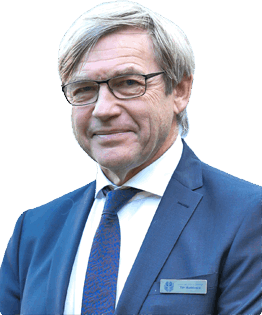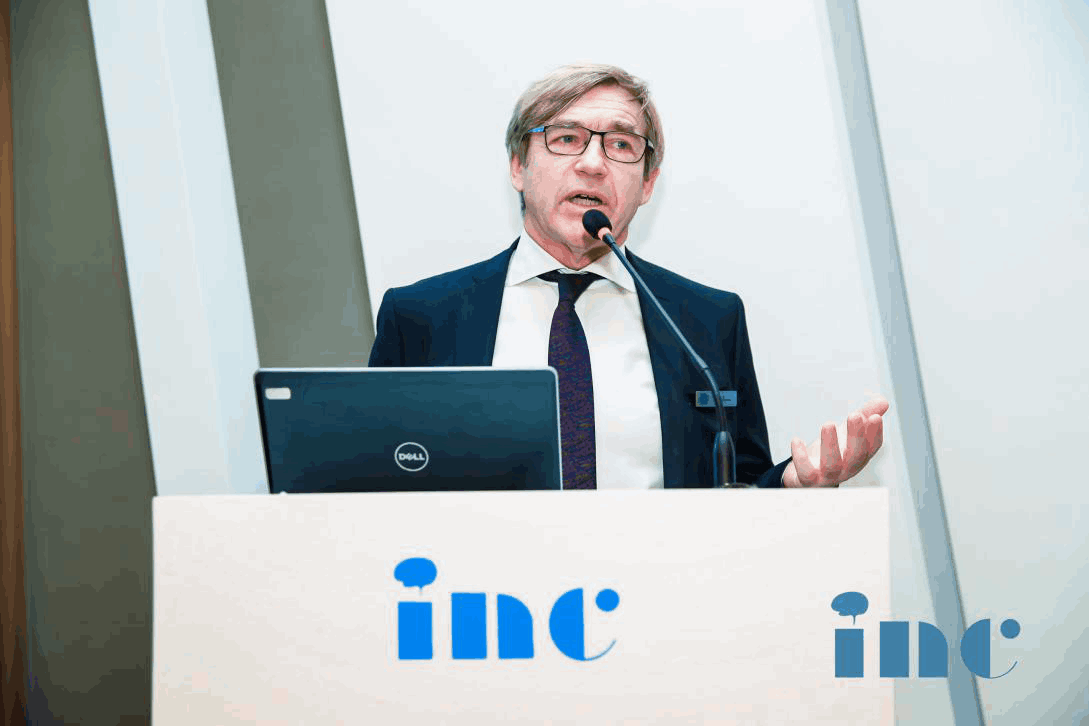




脑膜瘤、海绵状血管瘤、第三脑室病变、颅底和血管手术、个体化和组合式显微放射外科手术。
Tiit Mathiesen教授在多家知名医学杂志上发表了逾130篇论文,应邀或以访问教授身份参加了110余场国际会议。从2015年至今,Tiit Mathiesen教授是欧洲神经外科协会会(EANS)官方杂志Acta Neurochirurgica的主编。2003年Tiit Mathiesen教授任卡罗林斯卡学院颅底手术与良性肿瘤主管部门主任。2006-2016年任卡罗林斯卡学院神经外科学教授。2009-2016年世界神经外科联合会颅底手术教育中心/卡罗林斯卡学院主任。Tiit Mathiesen自2017年至今在丹麦哥本哈根大学和Righshospitalet神经外科担任临床教授和神经外科顾问。
Tiit Mathiesen教授拥有在病毒学和免疫学方面的研究背景,并且还研究了脑外伤中的炎症反应。他还负责主要的临床手术。此外,Tiit Mathiesen还制作了理论教材,实践教学课程以及举办有关道德和神经外科专题的国际讲座和课程。多年来,Tiit Mathiesen主要研究位于颅底的脑膜瘤以及神经血管手术和脑室内手术,并对脑血管和脑室内肿瘤进行手术。位于Rigshospitalet的Neurocentret的神经外科诊所在高度专业化的水平上进行大脑和神经手术。每年进行超过3,600次神经外科手术,而在神经外科门诊中心,每年约有10,000次门诊咨询。 “神经外科诊所是一个非常有趣的地方,我看到有充分的机会为该部门的强势地位的进一步发展作出贡献,并在研究,周围社区和患者治疗之间建立联系。我的经验和网络很好地融入了学术和临床结构。我期待着为国际研究和有才华的毕业生和博士的教育做出贡献,“Tiit Mathiesen表示。
Tiit Mathiesen教授作为INC国际神经外科医生集团旗下组织世界神经外科顾问团(WANG)成员,于2018年11月24日参加2018年世界神经外科顾问团年度峰会。为与会者献上一场场内容丰富的神经学科学术盛宴,分享世界领先的诊疗策略和手术技术。会上,Tiit Mathiesen教授带来了《脑膜瘤的治疗》的主题演讲。

1. Parental age and risk of genetic syndromes predisposing to nervous system tumors: nested case-control study.
2. Hyperbaric Oxygen Therapy as Adjuvant Treatment for Hardware-Related Infections in Neuromodulation.
3. Intracranial hemorrhage due to intracranial hypertension caused by the superior vena cava syndrome.
4. An audit of immunohistochemical marker patterns in meningioma.
5. Posterior canal dehiscence syndrome caused by an apex cholesteatoma.
6. Preservation of tap vestibular evoked myogenic potentials despite resection of the inferior vestibular nerve.
7. Ethical difficulties in the innovative surgical treatment of patients with recurrent glioblastoma multiforme.
8. Ethical clinical translation of stem cell interventions for neurologic disease.
9. Combination of microsurgery and Gamma Knife surgery for the treatment of intracranial chondrosarcomas.
10. Nitric oxide synthase expression after human brain contusion.
11. Venous complications in supracerebellar infratentorial approach.
12. Socioeconomic position and the risk of brain tumour: a Swedish national population-based cohort study.
13. Hyperbaric oxygen treatment of postoperative neurosurgical infections.
14. Neurosurgery and pregnancy.
15. Population-based data: the impact on glioma treatment for elderly patients.
16. Two-year survival of low-grade and high-grade glioma patients using data from the Swedish Cancer Registry.
17. Hypoglossal schwannoma-successful reinnervation and functional recovery of the tongue following tumour removal and nerve grafting.
18. Effects of using combined transpetrosal surgical approaches to treat petroclival meningiomas.
19. Radiation-induced meningiomas: the paradox of radiation treatment.
20. Effects of using combined transpetrosal surgical approaches to treat petroclival meningiomas.
21. Potential complications following radiotherapy for meningiomas.
22. Antiepileptic drugs as prophylaxis for de novo brain tumour-related epilepsy after craniotomy: a systematic review and meta-analysis of harm and benefits.
23. Introduction. Surgery involving the venous system and complication avoidance.
24. Validation of self-reported start year of mobile phone use in a Swedish case-control study on radiofrequency fields and acoustic neuroma risk.
25. Long-term 25-year follow-up of surgically treated parasagittal meningiomas.
26. Inflammation in the brain after experimental subarachnoid hemorrhage.
27. Experimental subarachnoid hemorrhage: subarachnoid blood volume, mortality rate, neuronal death, cerebral blood flow, and perfusion pressure in three different rat models.
28. Occurrence of primary brain tumors in cochlear implant patients in Sweden between 1989 and 2014.
29. Statement of Ethics in Neurosurgery of the World Federation of Neurosurgical Societies.
30. Trigeminal complications arising after surgery of cranial base meningiomas.